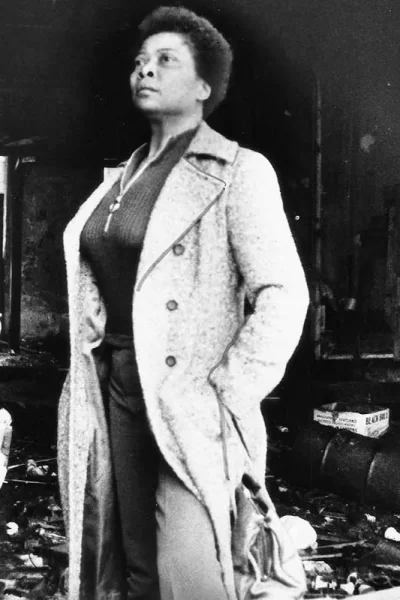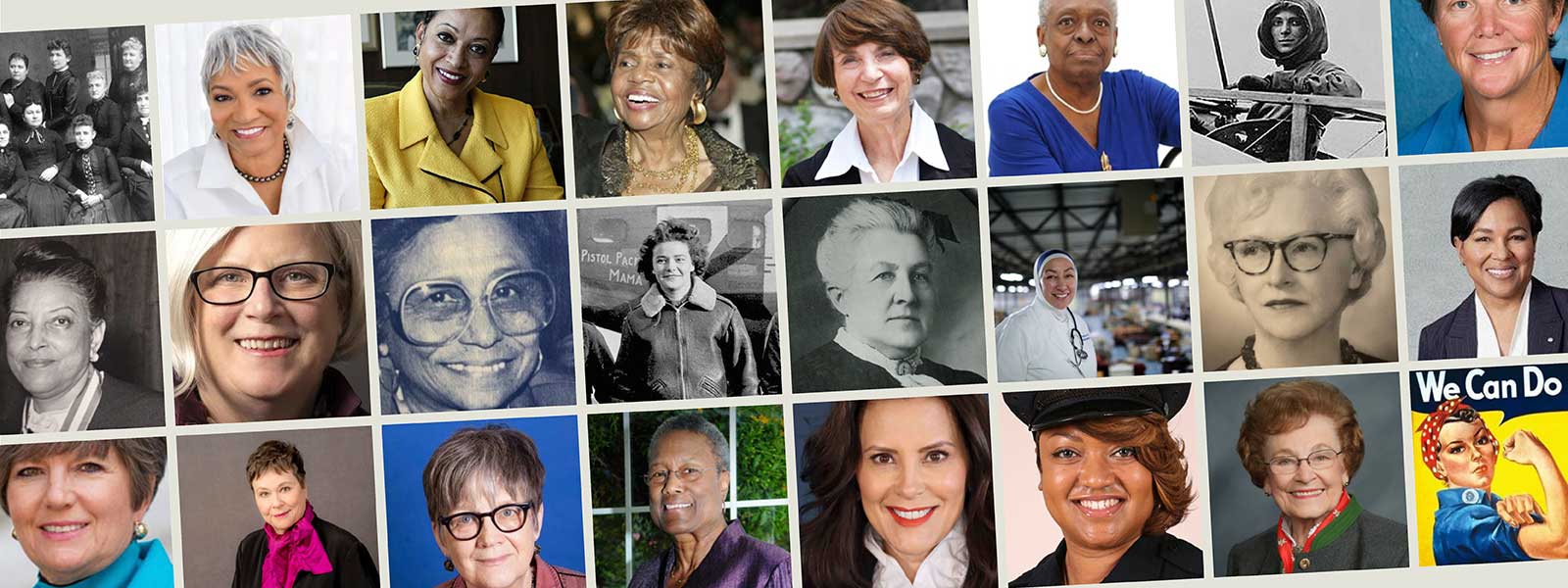Sarah E. Ray

1917-2006
Sarah Elizabeth Ray, also known as Lizz Haskell (1921–2006), was a trailblazing Black activist who made significant strides in the civil rights movement, particularly in Detroit. Born in Wauhatchie, Tennessee, Ray was one of 13 children in a family that highly valued education, especially for Black youth who faced widespread neglect in the South. At twenty, shortly after her marriage, her family relocated to Detroit in search of better opportunities.
Ray was dedicated to advancing her education despite the challenges she faced. She attended night classes, which enabled her to enroll at Wayne University (now Wayne State University). After a year, she secured a job with the Detroit Ordinance Department, allowing her to attend secretarial school. In 1945, she graduated from Commerce High School as the only Black woman in her class, demonstrating her determination and resilience.
In June 1945, Ray took a stand against racial segregation when she attempted to board the SS Columbia ferry operated by the Bob-Lo Excursion Company for a trip to Bois Blanc Island. Despite having purchased her tickets in advance, she was denied boarding solely because of her race, as the company enforced a policy excluding Black passengers. Initially resisting removal, Ray ultimately chose to leave the ferry voluntarily rather than be forcibly ejected. Instead of accepting a refund, she decided to challenge the discrimination legally with the assistance of the NAACP.
The resulting legal case, Bob-Lo Co. vs. Michigan, contested the company’s discriminatory practices in public transportation. The Recorder’s Court of Detroit ruled against the Bob-Lo Excursion Company, finding them guilty of wrongful discrimination and violating the Michigan Civil Rights Act, and fined them $25. The company appealed the decision, but both the Michigan Supreme Court and the United States Supreme Court upheld the original ruling. This case established an important legal precedent, influencing regulations related to foreign commerce and setting the groundwork for future landmark decisions like Brown v. Board of Education by reinforcing the illegality of racial segregation.
Following the 1967 Detroit riots, Ray recognized the urgent need for community support and interracial solidarity. She founded Action House, a community center dedicated to empowering Black youth through educational counseling, recreational activities, and essential services such as food distribution. As the director responsible for teaching, communications, and problem-solving at Action House, Ray led numerous fundraising efforts to sustain the center. Additionally, she was actively involved in political discourse, writing columns for local newspapers to highlight social and political issues affecting her community.
Ray’s legacy extends beyond her activism; she played a crucial role in fostering community unity and supporting the development of future Black leaders. Her efforts in creating safe and supportive environments for youth were instrumental in promoting racial harmony and providing opportunities for personal and academic growth.
In 2020, Ray’s contributions were honored in the documentary “Detroit’s Other Rosa Parks,” created by filmmaker Aaron Schllinger and author Desiree Cooper. The film highlighted her pivotal role in integrating the ferry system and her influence on subsequent legal victories, emphasizing the often-overlooked contributions of Black women in the fight for civil rights.
On a personal level, after divorcing her first husband, Ray married Raphael Haskell, a Jewish activist. Together, they co-founded Action House, further cementing her legacy as a dedicated community leader. Adopting the name Elizabeth Haskell and later Lizz Haskell, she continued her lifelong commitment to activism and community service. Ray remained a prominent figure in Detroit until her passing in 2006, seven years after her husband tragically died in a hit-and-run accident.





